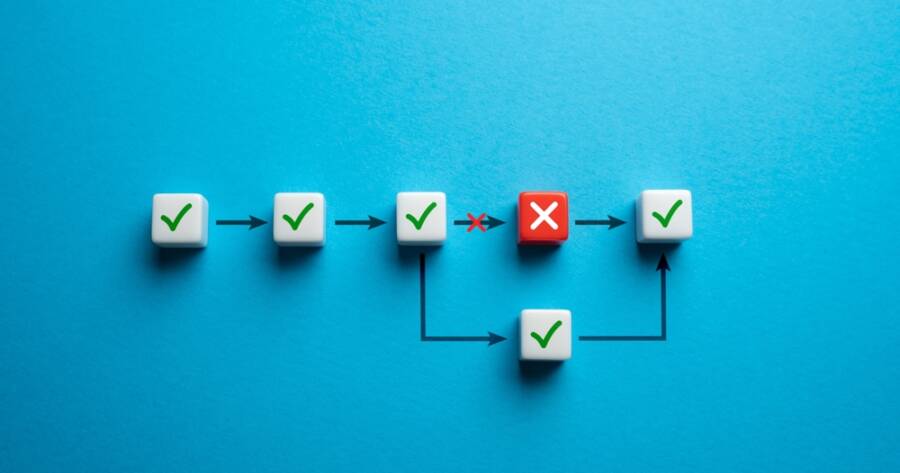Failure is often perceived as an endpoint in our journey, but it could instead act as a catalyst for personal growth and transformation. By re-evaluating our relationship with failure and using it as a learning opportunity, we might unlock potential for development and innovation. Embracing failure promotes resilience, encourages creative thinking, and may ultimately lead to success. Explore time-tested strategies to reshape perceptions of failure and learn to leverage it effectively for personal and professional progress.
Redefining Failure and Its Role
Understanding failure and viewing it from a different perspective is essential for personal growth.
The Misconception of Failure
Failure is commonly seen as a negative outcome, signaling defeat or lack of capability. However, this perception may limit opportunities for learning and improvement. Realigning your viewpoint to see failure as an inevitable part of growth can transform setbacks into critical learning experiences, helping you reframe these moments as valuable steps forward.
Failure as a Learning Tool
Viewing failure as a tool for learning might have significant benefits. Each setback could provide insights into what didn’t work, offering a chance to reassess strategies and make necessary adjustments. By recognizing patterns and identifying areas of improvement, failure often becomes instrumental in crafting more effective approaches and solutions.
Developing a Growth Mindset
Cultivating a growth mindset can play a crucial role in how failure is approached and managed.
Embracing Flexibility and Adaptability
A growth mindset thrives on the belief that abilities and intelligence can be developed through dedication and hard work. This flexible approach might encourage individuals to embrace challenges and persist through adversity. By adapting to change and being open to learning, setbacks could become opportunities to develop new skills and broaden perspectives.
Focusing on Effort and Progress
Acknowledging and celebrating effort rather than just outcomes can foster resilience. By focusing on the process rather than the result, each attempt, whether successful or not, may be seen as progress towards a larger goal. Recognizing small achievements along the way can be motivating and nurture the confidence needed to overcome obstacles.
Practical Strategies for Embracing Failure
Implementing effective strategies can aid in transforming failure into growth opportunities.
Analyzing and Reflecting
Taking time to analyze and reflect upon failures is often instrumental. Engaging in honest self-assessment might help identify what contributed to the setback and determine valuable lessons learned. This reflective practice allows for a comprehensive understanding of the failure, potentially revealing insights that can guide future actions.
Setting Realistic and Incremental Goals
Establishing realistic and incremental goals could make the journey towards success more manageable. Breaking down larger goals into smaller, achievable targets might reduce the perception of failure as overwhelming, providing a clear path for progress. Each small victory can build momentum, making it easier to recover from setbacks.
Building Resilience and Emotional Strength
Resilience and emotional strength can play key roles in effectively handling failures.
Developing Emotional Intelligence
Emotional intelligence involves understanding and managing emotions in oneself and others. By cultivating emotional intelligence, individuals might more effectively navigate the emotional response to failure, maintaining composure and perspective. This can enable constructive reactions and decision-making in the face of setbacks.
Creating a Supportive Environment
Surrounding yourself with a supportive network often fosters resilience. Engaging with mentors, peers, or communities who provide encouragement and guidance can be invaluable. Sharing experiences and receiving constructive feedback might offer new insights and affirmations that reinforce perseverance through challenges.
The Positive Impact of Failure on Innovation
Failure often serves as a driver for innovation and creative problem-solving.
Encouraging Experimentation
Accepting the possibility of failure can lead to greater experimentation and innovation. When fear of failure is minimized, individuals may feel empowered to take risks and explore uncharted territories. This openness might lead to discovering novel solutions and creative approaches that were previously overlooked.
Learning from Others’ Failures
Learning from others’ failures can offer significant value. Studying case histories and examples of how others have turned setbacks into successes might provide inspiration and guidance. These lessons could shed light on alternative strategies, offering valuable takeaways that can be applied to your own path.
Learn More Today!
Embracing failure as a stepping stone for growth involves a shift in mindset and an openness to learning and adaptation. By redefining failure, developing a growth mindset, and implementing practical strategies, individuals may transform setbacks into valuable opportunities for progress.
Building resilience, strengthening emotional intelligence, and fostering supportive environments can further aid in navigating the journey towards success. As failure often leads to innovation and creative breakthroughs, it can be a powerful catalyst for advancement in personal and professional domains. By embracing failure and leveraging it effectively, the path to growth and achievement becomes both attainable and rewarding.

